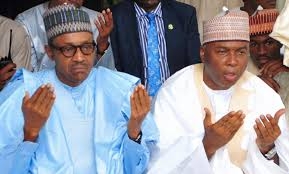In 1863, then U.S. President Abraham Lincoln, in his now famous Gettysburg speech introduced the world to what has now become the definition of representative democracy; the “government of the people, by the people, for the people.” Many countries of the world have now adopted this principle of democracy, as their preferred system of governance in the hope that it will augur well for their peoples.

Some of the private jets in Minna for IBB daughter’s wedding
Unfortunately today, the democratic system of governance has lost its very meaning, as slowly but surely, the democratically elected members in various governments, across the globe, have started to misuse their powers for their own selfish interests, thereby reducing the concept of democracy to a mere travesty.
Ordinary or common citizens do not, any longer, have any meaningful role/s to play in the affairs of the so-defined democratic government. After getting power, politicians in today’s democracy become autocrats and sometime progress to becoming plutocrats or a government of the wealthy; a warped, dysfunctional form of democracy.
Nigeria is fast becoming one of such warped and dysfunctional democracy, thanks to the Nigerian Senate. In Nigeria, it seems, the definition of representative democracy ends immediately after the elections – most of which are free but not fair and just. Voters vote like chagrined slaves whose only concern is to vote to elect their masters, who, more often than not, are uneducated, arrogant, dishonourable, senile, and, at best, criminals in resplendent gowns instead of prison attires who do not know what either representation or service to nation, people and humanity imply.
Nigeria’s Democracy Ranking
Score Rank Score Rank
2010-2011 2013-2014
40.0 106 40.6 107
Above is Nigeria’s democracy scores and ranking for the years 2010 to 2014, It shows a decline. And it does not need a rocket scientist to identify the reason/s for this trend; the Nigerian National Assembly, especially the Senate has provided the anchor for the vicissitudes that presently afflict Nigeria and its democracy. The present Senate has bastardized Nigeria’s democracy. How, you may ask.
In less than two years of dysfunctional, internecine partisan warfare and all-around mayhem, this Senate has been singularly unproductive, unethical, standing down most government requests frivolously, passing bills in staccato without an understanding of the urgencies of most bills to the nation. They did it, and continue to do it shamelessly shutting down the Senate to fight personal, ethical and other criminal accusations that they need to step down to defend thereby lurching the Senate from one crisis to another crisis, to the great ire and chagrin of most Nigerians.
For an upper chamber made of “ex-this, ex-that and ex-everything else,” in the unforgettable words of Dr. Ukpabi Asika, it is a situation that can only be described by one word; despicable!
The Nigerian Senate is as arrogant as it is boastful. It expects its words and actions, in the glare of contradictory evidence, to be believed and accepted as the gospel truth. The members hate it when they are called to order or corrected; especially if such opinions emanate from “”their masters,” the teeming Nigerians who elected them into office.
Their disgraceful display of arrogance does not stop there. They are autocratic, irritable and maladjusted. Several members of the Senate were once state governors and holders of several high ranking positions. As such, one should expect better decorum from them. But many have several criminal petitions, bordering on misconduct, negligence of due process, outright stealing of public funds, and other charges pending against them.
But for now, they believe and behave like self-style royalties whose opinions and directives Nigerians must quietly follow without ever questioning the direction, even when patently wrong. The members despise being asked questions and avoid it as much as possible thereby condemning the chambers into an organization bereft and stunted because of the lack of innovative and free-flowing ideas.
Underlying its arrogant and tough façade are evidences of ill-temperedness fearful of change that is all but certain. They are vehemently opposed to any change that puts the Senate in its proper trajectory in a working and efficient democracy; a sign that they have no confidence in themselves and would prefer to ignore the tough decisions but rather sweep them under the rug, further exposing their incompetence.
This incompetence is sustained by Senate leadership with a rigid hierarchical structure without which it will fade into oblivion. It is a power structure that puts immense pressure on members of the Senate by a desperate leadership adept at controlling team members using hierarchy and seniority; for every purpose, namely, parking spaces, who gets mentioned in Senate publications, constituency programmes, and so on. Even their unholy biases; sexism, ethnicism and other discriminatory behaviours become dominant. This is a precursor to imminent failure as Senate objectives become unfair and unrealistic, goals become unachievable, and people become demoralized and befuddled with heavy workloads.
Ordinarily, people will begin to talk about a need for reform in the democratic process. Can it be reformed? Reform in a system rife with corruption, marginalization of ethnic minority communities, restraints on freedom of expression, human rights violations, gender inequality, etc. that constitute the critical features of the current political system in Nigeria?
If true representative democracy cannot be achieved and delivered without these horrific features of a critical arm in its implementation structure why bother? Who needs this tortuous democracy? Definitely, not NIGERIA!






